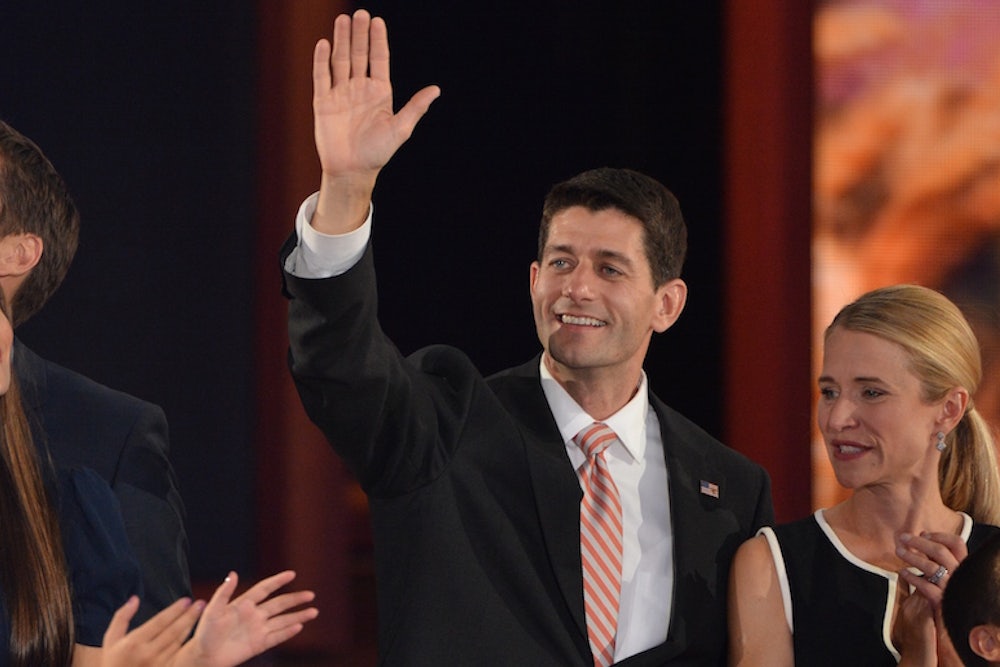Wisconsin Representative Paul Ryan declared late last month that he would not run for House speaker because, among other reasons, he didn't want to sacrifice time with his family. “This is a job where you are expected to be on the road about a hundred day a year,” he said. “Our kids are 10, 12 and 13, and I’m not going to do that.” Now, the former vice presidential candidate says he would consider succeeding John Boehner if certain demands are met, one of them being: "I cannot and will not give up my family time."
In many ways, Ryan’s ultimatum on spending time with his family is remarkably progressive. It is rare to see a male politician (especially one in such a prominent position) make clear and serious demands when it comes to work-life balance. It is perhaps even more unusual to witness such a premium placed on family time outside of extenuating circumstances like illness or childbirth.
If only his policies were as enlightened as his personal preferences.
Ryan’s voting record on family issues is dismal. In 2009, Ryan voted against legislation that would provide federal employees with four weeks of paid parental leave. He also voted in favor of preserving the work requirements imposed on assistance to poor families by 1996 welfare reform, meaning the poorest parents must spend more time behind the register at Arby’s than cooking dinner for their own children if they want to have anything to feed their kids at all. He voted in 2003 to raise the work requirement for receiving Temporary Assistance for Needy Families (TANF) from 30 hours per week to 40, and in his 2012 budget said that “imposing time limits and work requirements on federal need-based aid is a positive reform.”
In other countries, generous benefit programs (sans work requirements) allow parents to take vast amounts of paid leave post-baby, and to participate in the labor force only part time if they would prefer to spend more time at home. In the United States, the paucity of paid leave programs means some mothers go back to work as soon as two weeks after giving birth, and low-income parents wind up paying large percentages of their income for childcare while they work increasingly chaotic and long hours. If Ryan is serious about the importance of family time, and not just looking for a way out of the House speaker courtship, he should do what it takes to extend the benefits the wealthy enjoy to the working poor.
